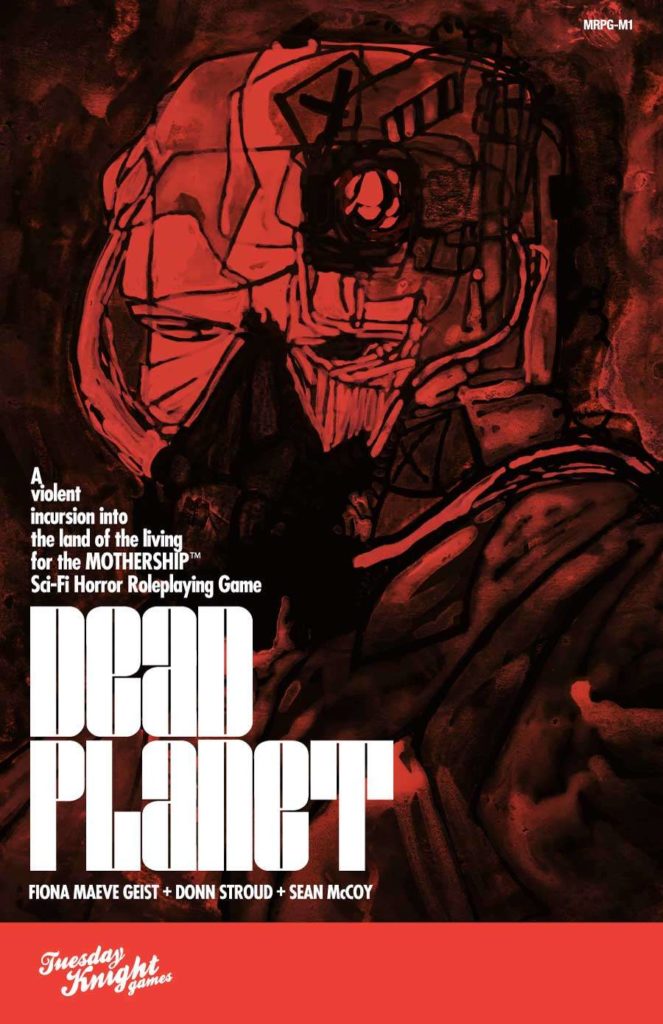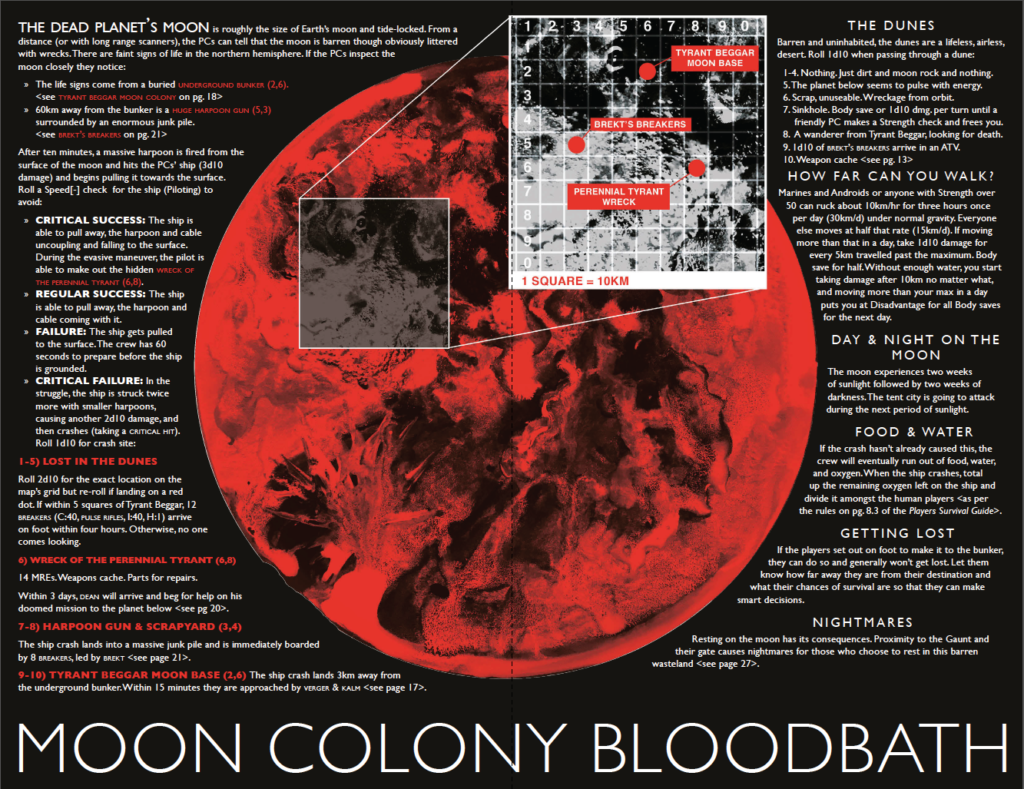I’m on a study project to improve my understanding of roleplaying games. To this end, I already have two reading projects, A Game Per Year and An Adventure Per Year. This is the third, with the goal of reading or playing 52 games made in the last few years. Originally I considered making this “A New RPG Per Week” and that’s where the number 52 comes from, even though a weekly schedule is probably not within my abilities.

Dead Planet is an adventure published for the OSR-style scifi horror roleplaying game Mothership. The characters find their spaceship unable to jump away from the vicinity of the titular Dead Planet. To be able to escape, they have to investigate other derelict starships, the moon and eventually the planet itself.
In style, Dead Planet resembles space horror classics such as the Alien movies and the videogame series Dead Space. Space is inhospitable and everything you encounter is actively malignant to the prospect of human life.
In terms of presentation, Dead Planet is a gorgeous little pamphlet. It really shines in terms of information design. Here’s a sample spread:

Dead Planet uses maps, diagrams, illustrations, tables and graphs in a well-thought out, efficient way to communicate a very high density of ideas and information. To use it, you have to know how to make an OSR supplement work, but if you do, it’s chock full of immediately relevant stuff.
The adventure also demonstrates why we don’t see more of this type of presentation even though it’s wonderfully practical: Sophisticated information design requires skill. It’s obviously an ability that these designers have, but I’ve read enough roleplaying game books to know that it’s not really one of the standard competences of the average roleplaying game book designer.
I found it very useful to read Dead Planet in the context of understanding the Mothership roleplaying game. Pretty much all roleplaying scenes and traditions are bad at explaining their core assumptions to outsiders. Reading an adventure made for Mothership communicates a lot about what kind of things you might want to include in Mothership adventures of your own making.